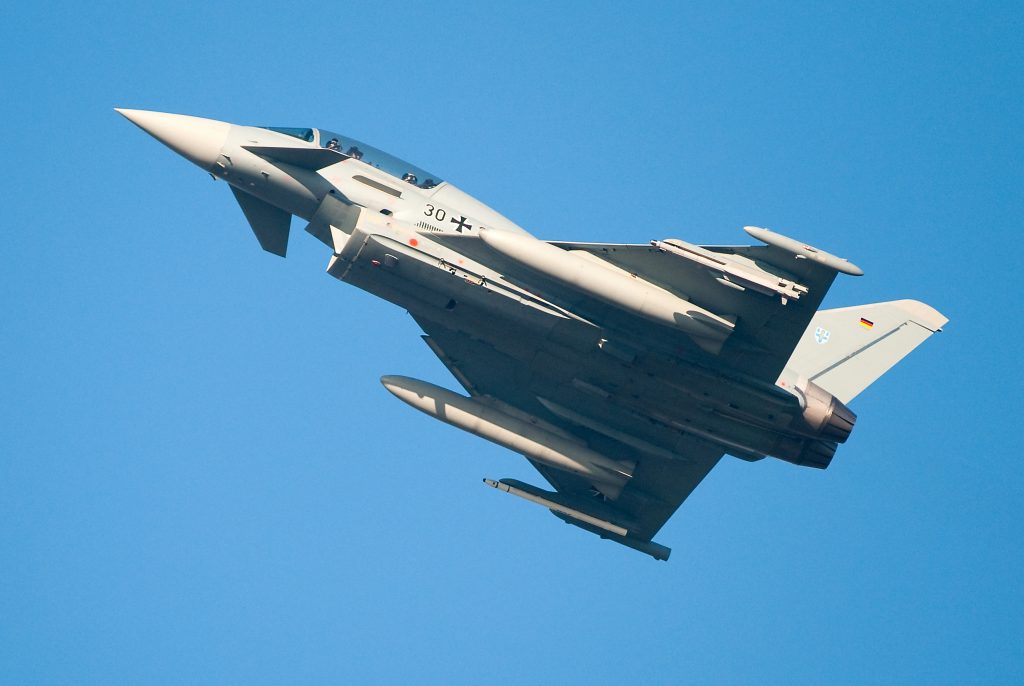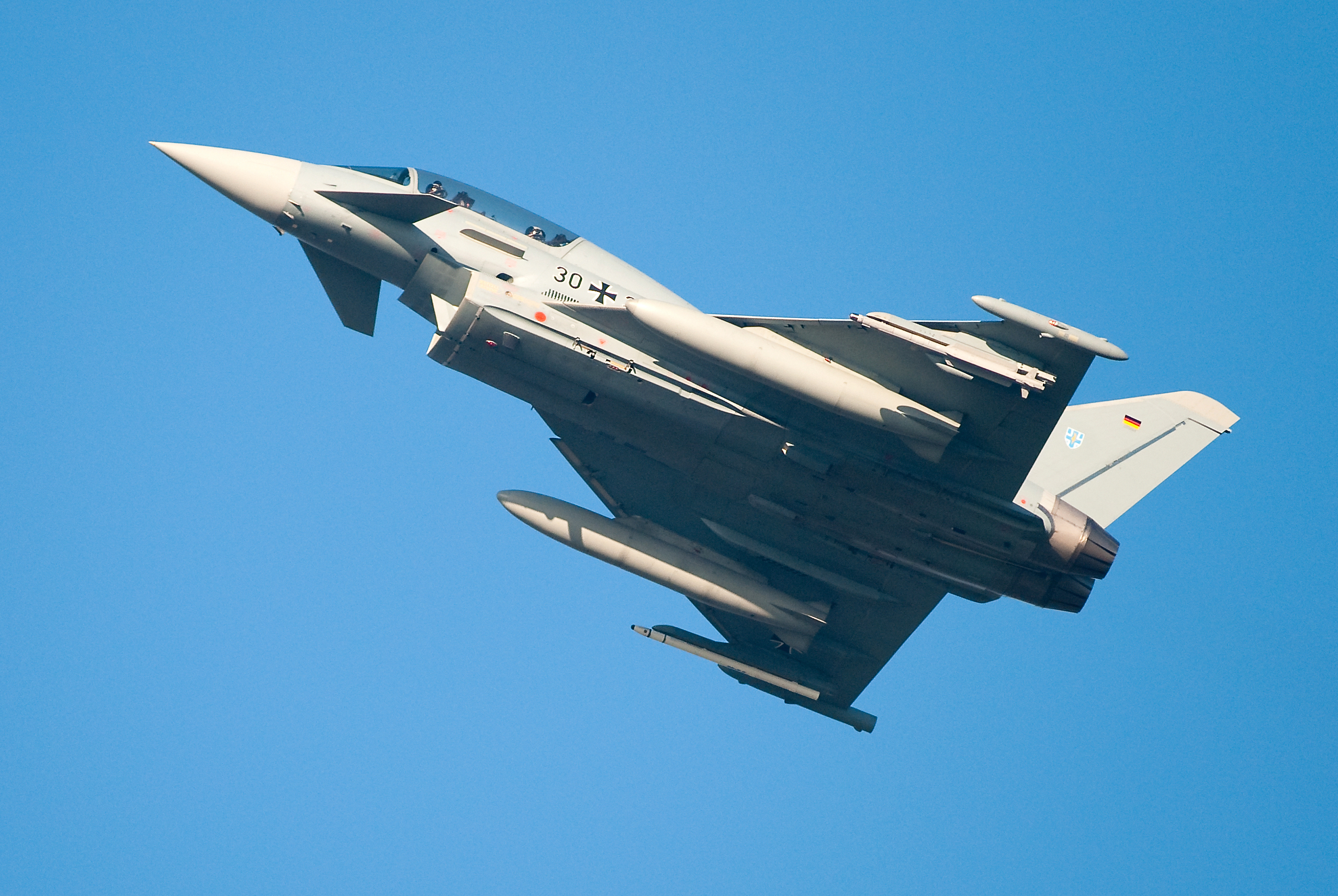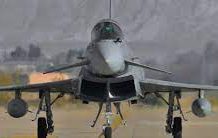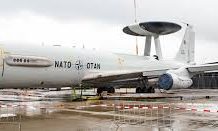German Defence Minister Boris Pistorius recently reaffirmed his country’s intent to transform its military into “the backbone of European defence”. The country’s staunch military support for Ukraine seems to indicate that it’s not just a question of intention. But real progress is being hindered by a long-term economic downturn and the lack of support from a government that uses defence procurement as a diplomatic weapon.

Germany’s global power has for decades been made possible by the dyad of cheap energy and manufacturing might. Its industrial powerhouse in the Rhineland has allowed it to use economic muscle to promote both German and European interests abroad, notably using export contracts to promote human rights, diversity and inclusion wherever it can.
But there is a deep scepticism taking hold of German industry at the moment, triggered by the economic malaise that has swept the German economy since the Russian invasion of Ukraine and Germany’s consequent decoupling from the Russian gas market. “The geopolitical developments have made it abundantly clear that our economic model is no longer a guarantor of prosperity,” said Andreas Rade, the managing director of the Association for the German Auto Industry, one of many energy-intensive industries faltering in the face of rising energy costs. The risk of recession is real.
By nature, the defence industry depends on industrial might, and the risk of German “deindustrialisation” could have deep, long term consequence for a sector that is currently playing a prominent role in German foreign policy. In truth, recent events have only highlighted deep-seated structural issues that have been boiling under the surface for some time. These structural challenges have impacted project management and quality control, and the essential dichotomy between craftsmanship and industrialisation. Confounded by ethical concerns, the German defence sector finds itself at a crossroads.
Challenges facing the defence sector
Scholz’s Zeitenwende speech was supposed to usher in a new era of German rearmament and proactive industrial policy. German arms exports have long been highly regarded around the world, with German-made weapons in regular use by modern fighting forces like the IDF, but efforts to rearm the Bundeswehr have underlined structural issues at home that belie Germany’s desire to present its military as a modern fighting force.
Long delivery times, high costs, and recurring technical glitches have been common issues as Germany struggles to reequip its army. Years of underfunding and misappropriation of available funds and a highly cumbersome procurement process have led to this impasse. R&D production in Germany is a craftsmanship, says Jürgen Kerner, board member of IG Metall. So far, the principle has been: “Ramp up production, mothball, shut down. If we want to produce sensibly now, (…) we have to enter into a continuous production process to avoid these high peak costs,” he says. German industry, then, has been operating on a principle of manufacture, not as a booming economic powerhouse.
Even though the industry performs well on paper in the eyes of international partners, post-Zeitenwende rearmament has highlighted how escalating bureaucracy and a lack of political leadership and industrial logic have hampered re-equipment efforts (resulting in perplexing issues like the mass breakdown of Puma Armoured Fighting Vehicle, made more unseemly by the success of Rheinmetall’s self-funded Lynx equivalent). Of course, Germany is not the only nation suffering from procurement and defence manufacturing issues, see the United Kingdom’s fiasco surrounding the Ajax programme.
Journalist Bernd Ziesemer explains in an article for Capital how these structural issues are holding back what should be otherwise one of the country’s strongest industries, writing that “Germany has an extremely powerful defence industry. But it cannot leverage its strengths because it can only function properly in collaboration with a capable Ministry of Defence. And because nothing is as hierarchically organised (and must be) as this particular department, it depends more on the person at the top than in any other ministry. Lack of competence causes chaos in procurement, especially in peacetime, and in wartime, it results in thousands of senselessly fallen soldiers.”
A lack of state support
As Ziesemer underlines, much of the malaise within the defence sector is a result of strained relations with the government. The Scholz government’s ambitious budget allocation for the Bundeswehr has yet to materialise, and there has been a lack of support for defence exports from successive administrations. The industry’s lack of political support is stifling growth, and more worryingly, turning friendly nations away. “The Poles have realised that it’s simply impossible to deal with the Germans,” explains Christian Mölling, a Defence policy expert at the German Society for Foreign Policy. He attributes the blame not to manufacturers like Rheinmetall but to the German government. In the arms business, state and industry must go hand in hand, according to Mölling: “It doesn’t make Rheinmetall’s business easier when there is little support from politics.”
This lack of support has led to mistrust and misunderstanding between industrialists seeking to maximise their profits and government officials trying to balance support for Ukraine with the Bundeswehr rearmament programme. “The Bundeswehr is not fully operational because the contributions to Ukraine create significant gaps. The Bundeswehr itself lacks everything: insufficient equipment and insufficient personnel. It suffers from numerous missions and additional tasks,” explains Eva Högl, Parliamentary Commissioner for the Armed Forces of Germany. “Soldiers should be given the opportunity to repair many devices themselves. Contracts would have to stipulate that the Bundeswehr is allowed to repair its equipment itself. The industry has so far prevented this. That must change.”
Compounding matters, the defence industry is also suffering from “enemies from within” who try to hinder its export competitiveness by means other than blocking exports: the Young Socialists of Rhineland-Palatinate, for example, have proposed a tax on the exceptional profits of defence industries. Ultimately, it is the customers who would pay this bill. “As a shareholder in an arms company, you can’t line your pockets just because people are dying elsewhere. And people here are reaching their limits. We say: the money that could be made from this could be used for the benefit of the general public for many really good things,” says Beatrice Wiesner, the Deputy Chairperson of the Young Socialists in Rhineland-Palatinate. Of course, such calls are fundamentally opposed by other parties, not least the FDP.
Defence exports as a diplomatic tool
Further complicating the situation is the government’s policy of using defence exports as a diplomatic tool to put pressure on state actors with whom it has disagreements, which has reduced the importance of industrial and commercial concerns within the sector. For example, Germany’s staunch support for Israel has led it to threaten an arms embargo on Turkey, which is eyeing up a new fleet of Eurofighter jets for its air force. Germany had already blocked the sale of the same fighter to Saudi Arabia.
Germany’s willingness to place greater importance in questions of morality, inclusion and diversity rather than commercial affluence is key strategy of the German Foreign Ministry. Foreign Minister, Annalena Baerbock (Greens) has stipulated that the coalition government wishes to limit arms sales to countries outside the EU and Nato. “The human rights situation already plays an important role here,” she stated, adding that “this will also have an impact on countries that have so far been major recipients of German arms exports.” Nonetheless, Germany has approved arms deals worth over €305.1 million to Qatar, which is currently hosting the Hamas leadership.
This commercial and moral stance is not without a certain degree of versatility. In 2013, the German government finally authorised the sale of Leopard 2 tanks to Indonesia, after having held off for a long time on human rights grounds. And the embargo on Eurofighters for Turkey comes just a few years after Berlin delivered a significant number of Leopard 2s to Ankara. Now that Berlin has bought gas from Qatar without any ethical consideration, to the great displeasure of the left wing of the political establishment, and that its softness on Doha’s sponsorship of Hamas is also being criticised, a tightening of the screws on the defence markets cannot be ruled out, if only to reassure part of the governing coalition.
More broadly Germany’s arms control ambitions based on the below assessment by Secretary of State Jürgen Giegold, who is in charge of export control and who invented the concept of “value-based arms export control” leave the question open as to what extent arms manufacturers will have to comply with the Ministry’s policy of discretion: “In the key points of the Arms Export Control Act, we also propose that a joint European decision be taken between the partner countries in the case of jointly produced military equipment, instead of an addition of seemingly national decisions. Such joint decisions must be prepared by a joint secretariat in order to ensure the uniformity of decisions on the basis of common rules. This is necessary in order to bring together the necessary and sensible European cooperation in the field of defence with value-based arms export control”.
This article is a contribution from Peter Brandt






